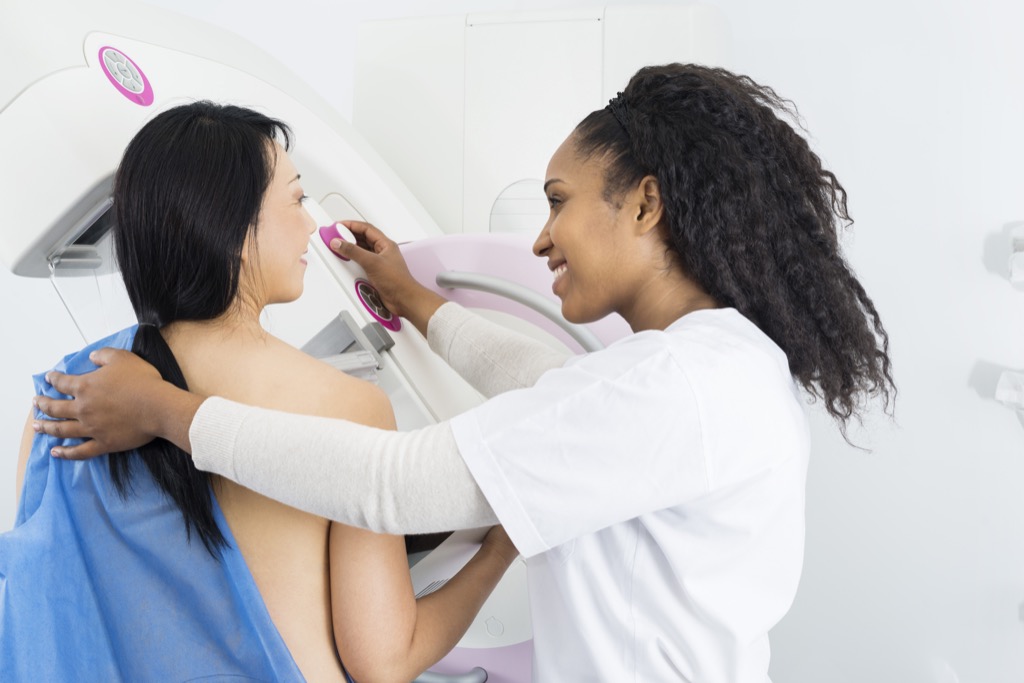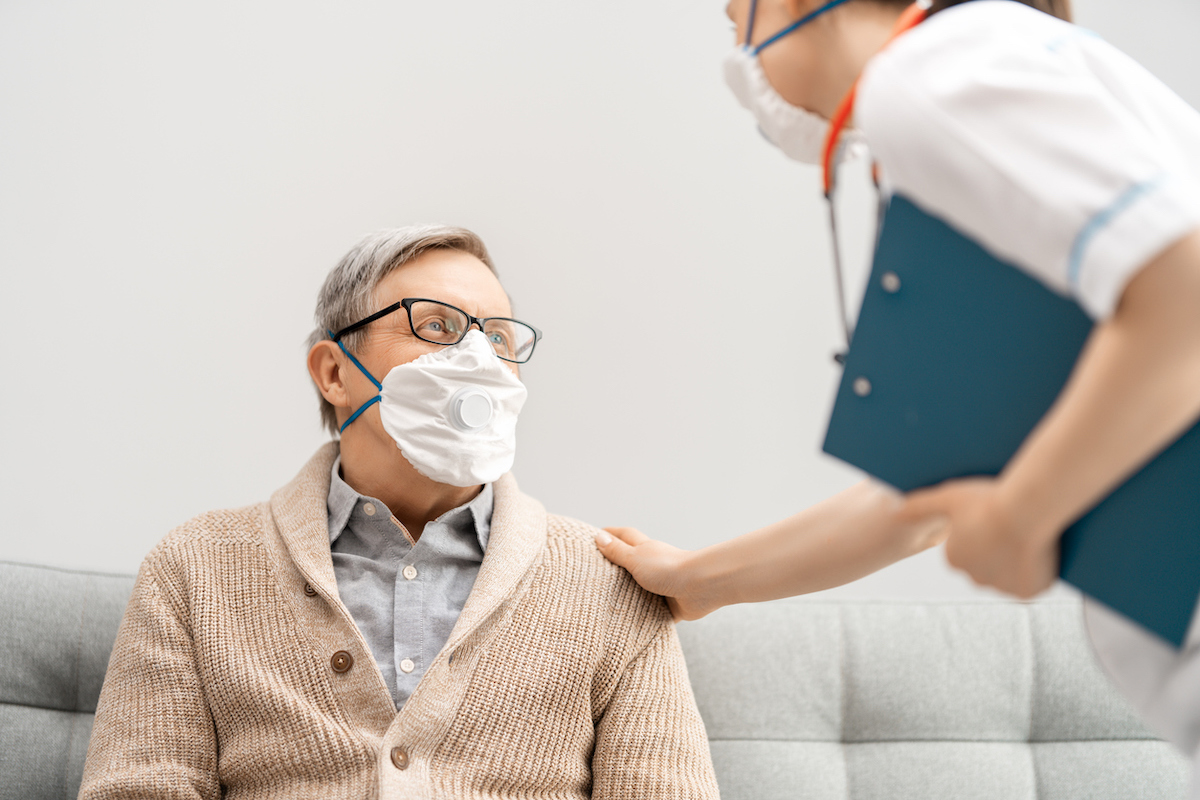The recent study, which was published in the journal Cancer on Mar. 29, analyzed data from hundreds of thousands of patients between the ages of 61 and 69. Among the patients studied, 134,991 had lung cancer, 175,558 had breast cancer, 62,721 had colon cancer, and 238,823 had prostate cancer—all four of which are among the most common cancers in the country. According to the research, the biggest jump in those four cancer diagnoses followed the 64 to 65 age transition. Then, “in the years following age 65, diagnosis rates declined for all cancers,” the researchers said in a press release. And for some symptoms of common cancers, know that If You’re Sweating at Night, It Could Be a Sign of These Kinds of Cancer. “Essentially we showed there is a big jump in cancer diagnoses as people turn 65 and are thus Medicare-eligible. This suggests that many people are delaying their care for financial reasons until they get health insurance through Medicare,” senior author Joseph Shrager, MD, a cardiothoracic surgery professor at Stanford School of Medicine, said in a statement. People who are between the ages of 61 and 64, usually are without insurance because they retired early and they have a gap in medical insurance, the study explains. Between 13 and 25 percent of adults in the study were either without insurance or were awaiting Medicare eligibility. According to the findings, colon cancer was one of the most stark examples indicating that people don’t get screened until they’re on Medicare. The annual growth rate for colon cancer was just 1 to 2 percent in the years leading up to Medicare eligibility, but that number jumped to nearly 15 percent at age 65. And for more age-related health concerns to be aware of, If You’re Over 65, These Common Medications Pose High Risks, Study Says. As a result of the delayed cancer screenings, people are getting diagnosed later and have worse chances of survival. As Shrager said, “If you don’t get the right screening or prompt diagnosis you are going to have lower cure rates.“ae0fcc31ae342fd3a1346ebb1f342fcb The researchers also found that cancer patients with medical insurance have “lower five-year cancer-specific mortality rates” than patients who were uninsured. Insured patients also were more likely to get surgery. And for more up-to-date health news, sign up for our daily newsletter. Shrager believes some type of Medicare expansion could help uninsured Americans get screened earlier. Currently, the Biden administration is pushing to lower the Medicare eligibility age to 60 after the passing of the Affordable Care Act, The Wall Street Journal reports. Until any changes are made, Medicare—which includes hospital insurance, medical insurance, and prescription drug coverage—is only available to people over age 65, younger people with disabilities, and people suffering with permanent kidney failure requiring dialysis, Medicare.gov notes. And for more symptoms to be on the lookout for, check out These Are All the Cancer Warning Signs Hiding in Plain Sight.



